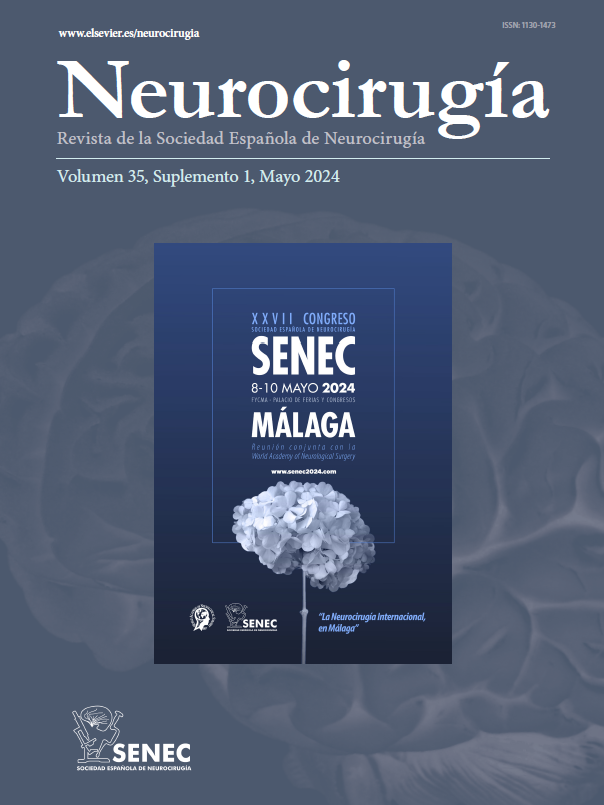Los quistes espinales meníngeos que den lugar a alteraciones neurológicas no se observan con frecuencia y es menos habitual que estos quistes adquieran grandes proporciones; sin embargo es interesante conocerlos en tanto en cuanto son procesos absolutamente benignos que pueden determinar graves trastornos neurológicos. Su origen y mecanismo de producción, aunque incierto en algunos casos, parece estar ligado a un trastorno del desarrollo embrionario y habitualmente se asocian a otras malformaciones congénitas.
Uno de los problemas diagnósticos es determinar si comunican o no con el espacio subaracnoideo. Para ello es de mayor utilidad el estudio con mielo-TAC que los datos proporcionados por la RNM. El tratamiento debe ser quirúrgico con extirpación total del quiste y cierre del defecto dural si se quiere llegar a resultados satisfactorios.
Apoyando la teoría congénita se describe el caso de un quiste espinal meníngeo extradural gigante con otras anormalidades congénitas, del que se hizo resección total.
Spinal meningeal cysts that give rise to neurological alterations are not observed frequently. It is not common that these cysts get to great proportions. Nevertheless, it is interesting to study these sort of cysts since they represent beningn processes that can determine severe neurological disturbances. Their origin and mechanism of production, although uncertain in some cases, seems to be linked to disturbances in embryonic development; they are also associated to other congenital malformations.
One of the diagnostic problems that these cysts arise is whether they communicate or not with the subarachnoid space. In order to give light to this point it is more useful to use metrizamide myelography-CT scanning than NMR. Surgical treatment is suggested with total excision of the cyst and closure of the dural deffect, if satisfactory results are to be achieved.
In this work the congenital theory is backed describing a case of a giant extradural spinal cyst that is accompanied by others congenital abnormalities.
Article

If it is the first time you have accessed you can obtain your credentials by contacting Elsevier Spain in suscripciones@elsevier.com or by calling our Customer Service at902 88 87 40 if you are calling from Spain or at +34 932 418 800 (from 9 to 18h., GMT + 1) if you are calling outside of Spain.
If you already have your login data, please click here .
If you have forgotten your password you can you can recover it by clicking here and selecting the option ¿I have forgotten my password¿.






